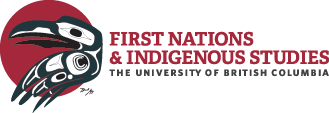Musqueam Legal History — A Digital Media Archive
The Musqueam Indian Band has been involved in a number of precedent-setting legal battles over the past few decades. Four of these cases made it to the Supreme Court of Canada and they have been crucial in further defining Aboriginal rights and title. They have also been hugely influential in raising public awareness about the issues that Aboriginal peoples in Canada continue to face due to the infringement upon and denial of their rights.
Guerin
Guerin v. The Queen (1984) was a case regarding 162 acres of Musqueam lands that had been leased to a Vancouver golf club in 1958. The Musqueam went to trial after discovering that the lands had been leased to the club by the Federal Government on significantly different terms than those which Musqueam had agreed to. The Court ruled that the Crown had neglected its fiduciary duty to Musqueam when it renegotiated the land deal without Musqueam’s knowledge, and awarded Musqueam $10 million. While the ruling was appealed by the Crown, the Supreme Court of Canada backed the original ruling. As a result, the concept of the Crown’s “fiduciary duty” to Aboriginal peoples has become integral to interpretations of Section 35 of the Constitution Act, 1982.
Read more about R. v. Guerin R. v. Guerin Media Archive
Sparrow
Sparrow v. The Queen (1990) was a case involving Aboriginal fishing rights in British Columbia. In 1984, Musqueam Band member Ronald Sparrow was arrested for fishing in traditional Musqueam territory with a net that was longer than was permitted by his food fishing license. Musqueam recognized that this could be a test case on the nature of Aboriginal rights and chose to support Sparrow in his trial. Sparrow was found guilty in BC Provincial Court and subsequently, following an appeal, in BC County Court. However the case made it to the Supreme Court of Canada and in 1990, the Court ruled in Sparrow’s favour. It found that despite drastic restrictions and infringements, the Musqueam’s right to fish had not been extinguished prior to 1982, and as such was protected in Section 35 of the Constitution Act, 1982.
Read more about R. v. Sparrow R. v. Sparrow Media Archive
Lease Lands
In 1960, to generate income for the Band, Musqueam handed over part of its reserve to the Crown in order for it to be subdivided and leased to non-Band members. The leases began in 1966 and lasted 99 years, 30 years of which the rents were fixed at $400 a year and for the remainder of the years were to be set at “a fair market rate.” When the leases ended in 1995, Musqueam argued that the rents should be set according to land values of nearby non-Musqueam-owned lands. This amounted to 6% of the current land value, up to $23,000 a year. The leaseholders resisted and took the case to court, arguing that such an increase in rents amounted to extortion. The Federal Court ruled that leased Aboriginal land was only worth half of freehold land, and set the rent cap at $10,000 a year. Musqueam appealed this decision and won their appeal; the Federal Court of Appeals reinstated the $23,000 rent, but the leaseholders refused to pay and instead appealed to the Supreme Court of Canada. In 1999, the Supreme Court of Canada ruled in favour of the leaseholders and reaffirmed the original ruling that Aboriginal title reduces the value of lands by half, entitling the leaseholders to pay lower rent.
University Lands
Most recently, in the spring of 2008, British Columbia finalized a landmark deal with Musqueam. The deal, which was ratified overwhelmingly by the Band, involves the transfers of a number of small parcels of land back to the Musqueam. This land includes the University of British Columbia Golf Course lands, the Bridgeport Casino lands and two parcels of land from the Pacific Spirit Regional Park.
University lands Media Archive
This legal history digital archive was put together in 2009 by 4th year First Nations Studies student Tanisha Salomons. Tanisha examined how the legal history of the Musqueam Band was presented through the mainstream news media. We hope this project will serve as a useful tool for students and researchers who wish to understand these specific cases and their significance within the larger context of Aboriginal rights and title in Canada, while paying special attention to how these cases were presented to the public through the media.

